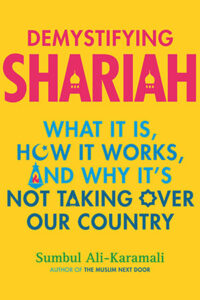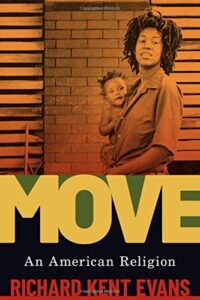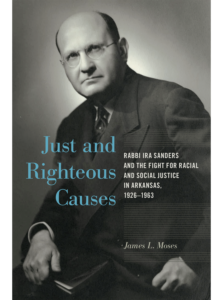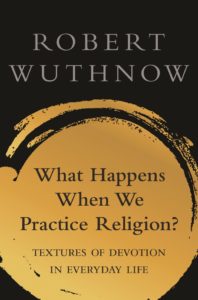 What It Is, How It Works, and Why It’s Not Taking Over Our Country
What It Is, How It Works, and Why It’s Not Taking Over Our Country
For years, anti-Muslim propagandists have circulated horror stories about shariah, insisting wrongly that it is a draconian and oppressive Islamic law that all Muslims must abide by. Demystifying Shariah, by Sumbul Ali-Karamali, explains the realities of shariah in an accessible, engaging style, while also confronting the misconceptions that remain so prevalent in many American minds today.
Ali-Karamali uses personal anecdotes as well as her degree in Islamic law to explain both the past and the present of shariah—its various meanings, how it developed, and how the shariah-based legal system operated for over a thousand years. She explains how it affects the daily lives of Muslims, and how to understand the modern calls for shariah. This book is an effort to educate people on the truths of shariah, and to help people understand why they should care about it whether they are Muslim or not.
Reviews and endorsements of the publication include:
“Purveyors of Islamophobia today often promote mischaracterizations of shariah in order to demonize Muslims. Ali-Karamali’s book represents a critically important antidote to this willful ignorance. It offers the uninformed reader a helpful background in the basics of shariah relative to Muhammad and the early Islamic community before exploring the many dimensions of shariah today with laudable clarity. With dual qualifications as both a lawyer and a specialist in Islamic law, Ali-Karamali is perfectly positioned to help the public disentangle itself from the thicket of misinformation and disinformation nurtured by the latest advocates of religious intolerance.”—Peter Gottschalk, professor of religion, Wesleyan University, and author of American Heretics
“Sumbul Ali-Karamali is able to speak to both Muslims and others about Islam with clarity and expertise. Shariah has been demonized in the United States for nakedly political purposes in a way that Roman Catholic canon law was in the nineteenth century, and in the way that halakhah or Jewish law has been by modern anti-Semites. Ali-Karamali expertly clears away the ideological cobwebs and lays out the facts about shariah and Muslim practice, and manages to make it all a page-turner.”—Juan Cole, professor of history, University of Michigan, and author of Muhammad
“An engaging, elegant, and accessible book on a subject everyone needs to understand. With clarity, compassion, and even humor, Sumbul Ali-Karamali explains shariah in a relatable narrative format, far from abstract, and guaranteed to resonate with those interested in separating the truth about shariah from all the myths and tall tales circulating in the public discourse.”—Reza Aslan, best-selling author of Zealot
For more information on the publication, click here.
Fellow travelers are scholars, activists, and practitioners that embody the ideals and commitments of the Project on Lived Theology. We admire their work and are grateful to be walking alongside them in the development and dissemination of Lived Theology.
For more of “On the Lived Theology Reading List,” click here. To engage in the conversation on Facebook and Twitter, @LivedTheology, please use #LivedTheologyReads. For more recommended resources from our fellow travelers, click here, #PLTfellowtravelers. To sign up for the Lived Theology monthly newsletter, click here.
 An American Religion
An American Religion


